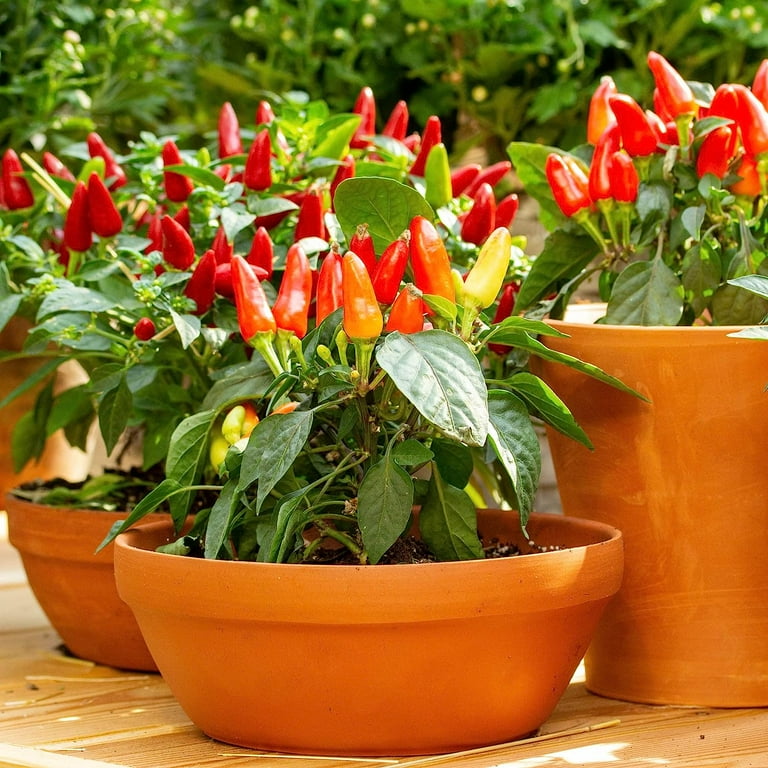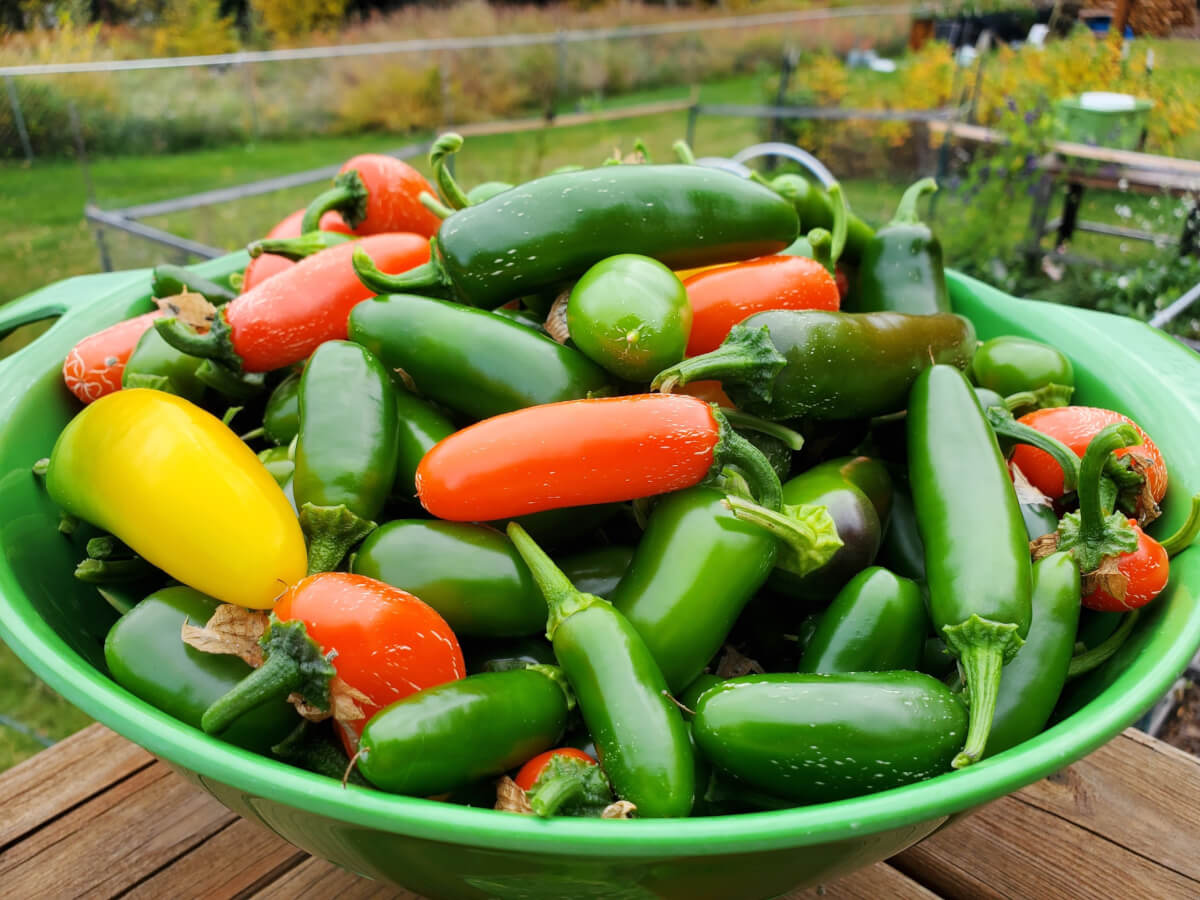Picking the Best Fertilizers for Peppers: Specialist Recommendations
Picking the Best Fertilizers for Peppers: Specialist Recommendations
Blog Article
Organic Vs. Synthetic Fertilizers: Which Is Best for Nurturing Healthy Pepper Plants?
In the realm of nurturing healthy and balanced pepper plants, the choice between natural and synthetic fertilizers stands as a critical decision with far-reaching effects. While both choices aim to give necessary nutrients to support plant development, the subtleties of their influence on the dirt, plant health and wellness, and the setting stimulate a dispute that mirrors throughout the gardening community. Recognizing the unique advantages and possible challenges of each fertilizer kind is essential for pepper growers looking for to optimize their yields while maintaining an eco-conscious and lasting approach.
Advantages of Organic Fertilizers
Organic plant foods offer an environmentally-friendly and lasting strategy to nourishing pepper plants, offering crucial nutrients without making use of synthetic chemicals. These all-natural fertilizers are derived from organic resources such as garden compost, manure, bone meal, and seaweed, promoting dirt health and biodiversity. Unlike synthetic plant foods, organic choices release nutrients gradually, making certain a well balanced and consistent supply for pepper plants to thrive.
One significant benefit of natural fertilizers is their capability to boost soil framework and water retention. By boosting soil wellness, organic plant foods promote useful microbial task, which aids in nutrient uptake by pepper plants. Furthermore, organic plant foods minimize the risk of chemical run-off, safeguarding water sources from contamination and guarding the setting.
Moreover, natural fertilizers add to lasting soil fertility by promoting the development of beneficial soil microorganisms. These organisms help break down natural issue, releasing nutrients in a type that is easily accessible to pepper plants. best fertilizers for peppers. By promoting a healthy and balanced soil community, natural fertilizers sustain lasting pepper growing techniques that benefit both plants and the setting
Disadvantages of Artificial Fertilizers
Artificial fertilizers, in contrast to their natural counterparts, posture numerous downsides when utilized to nourish pepper plants, affecting both plant health and wellness and ecological sustainability. One significant disadvantage of artificial plant foods is their propensity to seep nutrients from the soil promptly. This rapid leaching can cause vitamins and mineral inequalities in the soil, causing plants to deal with deficiencies or toxicities. Additionally, synthetic fertilizers can harm valuable dirt microorganisms, such as earthworms and helpful microorganisms, interfering with the dirt ecosystem's balance.
Furthermore, the overuse of artificial plant foods can add to water contamination. Excess plant foods not soaked up by plants can clean away into water bodies, causing eutrophication, where algae blossoms deplete oxygen degrees in the water, harming aquatic life. Synthetic fertilizers are commonly obtained from non-renewable sources, such as fossil fuels, adding to carbon discharges and environmental degradation during their manufacturing.
Nutrient Absorption Contrast
When comparing organic and artificial fertilizers in terms of nutrient absorption, natural fertilizers have the advantage of offering a more balanced and slow-release resource of nutrients. Organic plant foods consist of a range of macro and micronutrients that are not only advantageous for the plants yet also promote healthy soil microbial activity, which helps in nutrient uptake.
Moreover, natural plant foods boost dirt framework and water retention ability, permitting pepper plants to access nutrients more efficiently. This enhanced soil high quality promotes root advancement, enabling much better nutrient absorption. Artificial plant foods, although at first increasing plant development because of their high nutrient focus, might prevent long-term nutrient absorption by degrading dirt health gradually.
Ecological Impact Factors To Consider

On the various other hand, synthetic plant foods, although commonly even more instantly readily available and focused to plants, can have harmful impacts on the setting otherwise applied effectively (best fertilizers for peppers). Their manufacturing calls for high power inputs, resulting in greenhouse gas discharges and adding to environment modification. The overflow of excess synthetic fertilizers can pollute water resources, leading to eutrophication and damaging marine communities.
Ideal Plant Food Practices for Peppers
When fertilizing pepper plants, optimizing nutrient uptake and decreasing environmental impact are essential factors to consider. To attain this, it is important to adhere to finest fertilizer practices tailored to the specific demands of pepper plants. One crucial method is to carry out a soil examination before using any plant foods. This examination can identify the pH degree of the dirt and identify any kind of nutrient shortages, guiding you in selecting one of the most suitable plant food formula.
An additional vital technique is to feed a fantastic read pepper plants at the appropriate time. Commonly, peppers take advantage of obtaining plant food at planting and afterwards once again when they start to flower. Over-fertilizing can lead to nutrient discrepancies and harm the plants, so it is important to comply with suggested application rates.
Additionally, picking a well balanced plant food with an NPK proportion that fits pepper plants' demands is fundamental. Organic fertilizers, such as compost or manure, can be superb selections as they launch nutrients slowly and improve soil structure with time. However, artificial plant foods can supply a fast nutrient increase when needed. Inevitably, incorporating synthetic and organic plant foods carefully can assist nurture healthy and balanced pepper plants while lessening environmental influence.
Final Thought

Organic plant foods offer a Check Out Your URL lasting and environmentally-friendly method to nourishing pepper plants, giving necessary nutrients without the usage of artificial chemicals. Unlike artificial plant foods, organic alternatives launch nutrients slowly, guaranteeing a balanced and steady supply for pepper plants to grow.
Artificial fertilizers, in contrast to their natural equivalents, pose numerous drawbacks when used to nourish pepper plants, impacting both plant wellness and environmental sustainability. When contrasting synthetic and organic fertilizers in terms of nutrient absorption, organic plant foods have the advantage of providing an extra well balanced and slow-release source of nutrients.Furthermore, organic plant foods boost soil framework and water retention capability, permitting pepper plants to accessibility nutrients extra effectively.
Report this page